Shared Ownership Houses
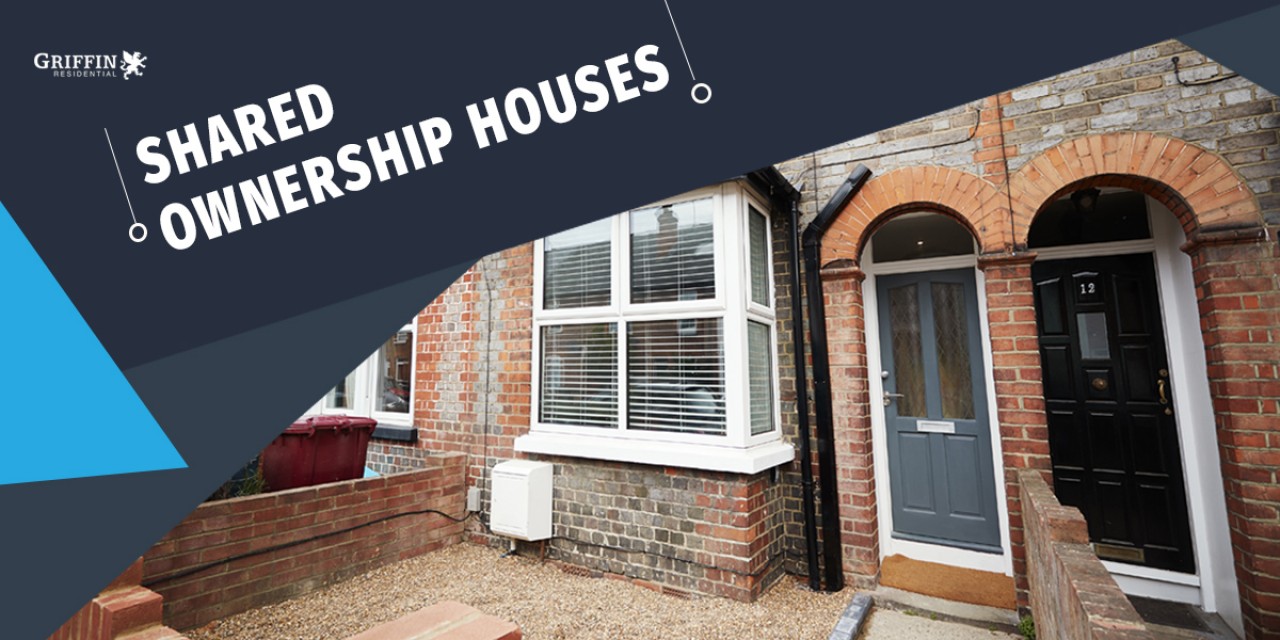
Shared Ownership Houses, How Does it Work?
Buying a house is a big purchase. It is arguably the biggest purchase that you are ever going to make in your life, and for that reason, you need to know what your options are when it comes to this. Not everyone is going to be able to afford a mortgage on an entire home, and that is where you need to start looking at alternative options that allow you to still get the house that you want, but through a different method than you had originally planned. In this article, we are going to be looking at shared ownership houses, what they are, and how they work. So, if this is something that you are interested in, keep reading down below to get all of the information that you need.
What Is Shared Ownership?
So, like we said above, the option that we are going to be looking at in this article is shared ownership. What this means is that you buy a share of the property, usually as much as you can afford, and then you will pay rent on the remaining shares of the property. The company or the people who you bought the share of the house from will still own the remainder of the home, and you will continue to pay rent to them until you can afford to buy new shares. This is usually done with a housing association or local authority, but there are people who like to do this as well.
There are some restrictions on this though, and not everyone will be able to purchase a home through shared ownership. For example, one of the things that you need in order to qualify for this is that you need to have a combined annual household income of under £80,000, or £90,000 if you live in London. If not, you are deemed able to afford an entire mortgage, and you will not be eligible. Another thing that you need to know is that you cannot own property, or part of a property at the time of purchase. So, if you do own any other property at all, this will hinder you and stop you from qualifying for this scheme.
But, you also have to have a minimum of £5,000 in order to cover the cost of buying a home in the first place. If you don’t have this right now, then you are going to need to save up, get this money and then apply for shared ownership once you have it. Finally, you are going to need to have a good credit history, so that the person who owns the other shares of the property knows that you are going to be making the payments as and when you should.
You could still be able to purchase a home through this scheme if you have previously owned a home, as long as this is not the case when you sign the contract.
How Does It Work?
But, how does shared ownership work? We kind of touched on this a little further up but we are going to go into more detail in this section. When you can’t afford 100% of the mortgage, you are going to need some help to buy the home that you want. As such, what happens is that you purchase as many shares in the property as you can afford at the time, and then you will continue to pay rent to the other owner on the shares that they still own. You will usually find that you will be sharing ownership of the property with your local authority or a housing association.
As you don’t own the entire property, shared ownership agreements are always going to be leasehold. This means that you are going to have a lease from the freeholder, which is the company that owns the rest of the house. This gives you the right to use the home, and these are usually long term agreements with the shortest usually being around 40 years.
You are going to have to take out a mortgage on the shares of the home that you can afford to buy unless you are funding this through your savings. Even if you do take out a mortgage, you are still going to have to pay the rent to the freeholder, so do make sure that you take this into consideration when you are working out all of your expenses.
If You Have A Disability
If you have a long-term disability, then Home Ownership for People with Long Term Disabilities (HOLD) will be able to help you purchase a home that is for sale through shared ownership. This is only going to be the case if the homes that are for sale through all other home ownership schemes are not sufficient for any needs that you might have because of your disability. This means that if you are looking for a ground floor flat because you cannot get up the stairs, but there are none available for you to buy through the usual methods, HOLD will be able to help you purchase one that is being sold under shared ownership.
Is There A Way To Get Priority?
Government-funded shared ownership schemes do not provide priority to any group of person other than military personnel. Military personnel will be given priority on these houses if the scheme is government funded, however, many councils have their own shared ownership home-building schemes, in which they will give priority to certain groups. This usually depends on the local housing needs of that area.
We hope that you have found this article helpful, and now know more about shared ownership houses, including what they are and how they work. If you are thinking of purchasing a home through shared ownership, make sure that you have all of the information before you sign the contract to ensure that you are not getting yourself into any trouble. Good luck and we hope you get the home that you want!
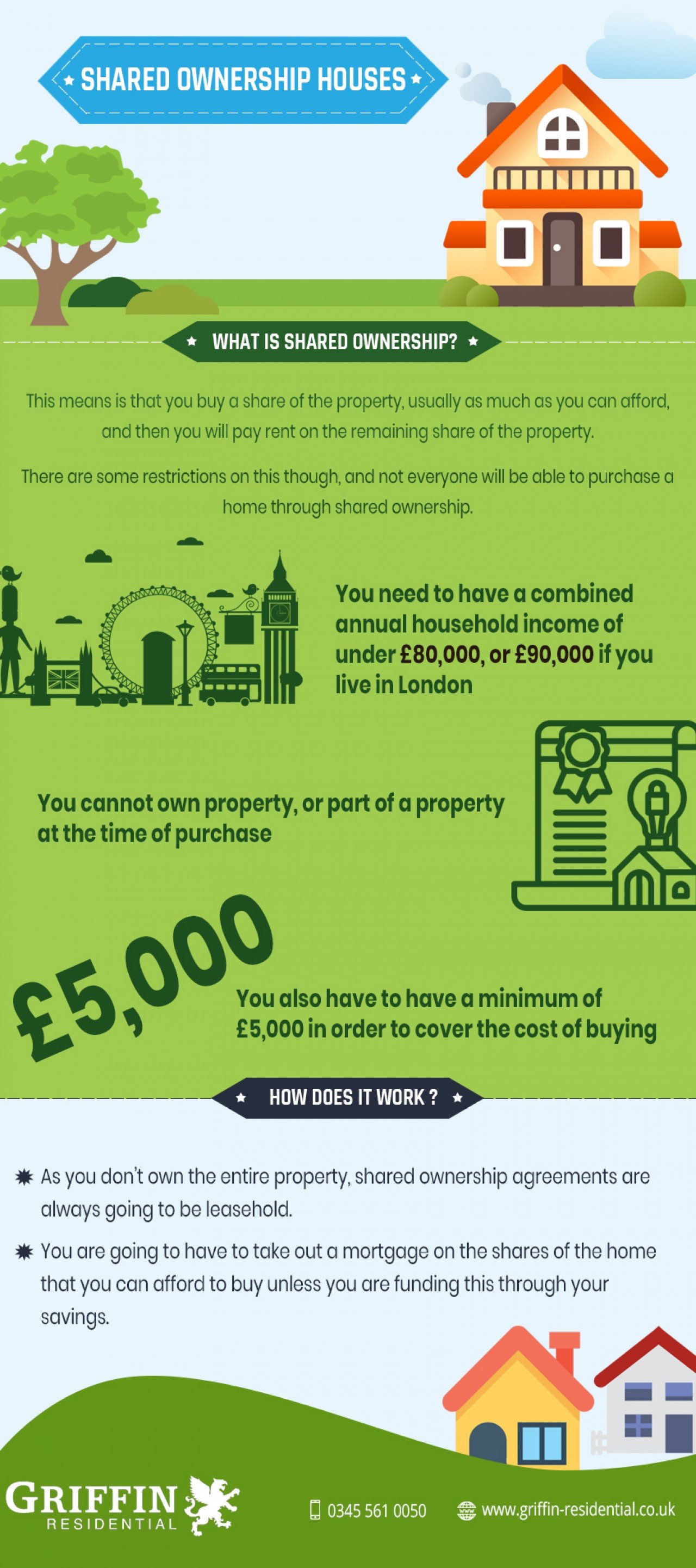
FAQ:What Does Shared Ownership Mean?
In a shared ownership housing arrangement, each resident purchases a portion of the home (typically 25–75%) and pays rent on the remaining portion. Due to this, home ownership is less expensive, but buyers can gradually increase their ownership. Most homes are leaseholds, and while you oversee maintenance, the landlord or housing association might be able to help with some repairs. It enables those with limited financial resources to enter the real estate market while sharing the costs with another party.
FAQ: How Do I Gain Additional Shares in My Shared Ownership?
You can gain additional shares in your shared ownership property through a process known as "staircasing." This entails gradually acquiring more ownership shares in the property. First, you need to have the property valued to determine the current market value of the shares you want to buy. Then following the valuation, you can secure financing, usually in the form of a mortgage to cover the cost of the additional shares. Staircasing enables you to gradually increase your ownership of the property, potentially lowering your rent and bringing you closer to full ownership.
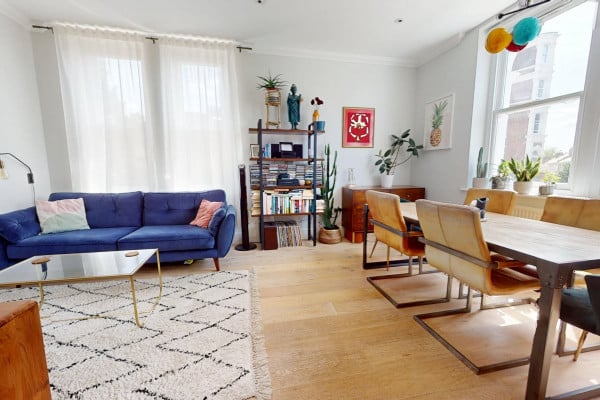
When Property Offers Fall Through: A Guide for Sellers and Buyers
25.06.2025One of the biggest worries for anyone buying or selling a home is the possibility of the deal falling through. And it's a valid concern - nearly 29% of property sales in the UK didn't make it to completion in 2024. Whether due to cold feet, poor survey results, or mortgage issues, it's more common than most people think.
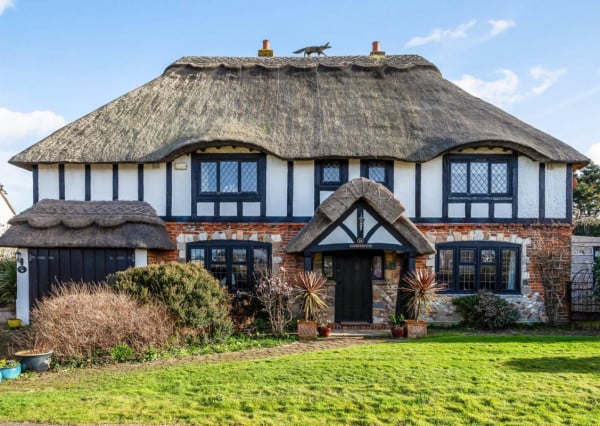
The Best Building Survey if You're Buying an Older Property
05.06.2025Buying a property is a big decision by anyone's standards, which is why it's important to view one with a practical hat on rather than being ruled by your heart.
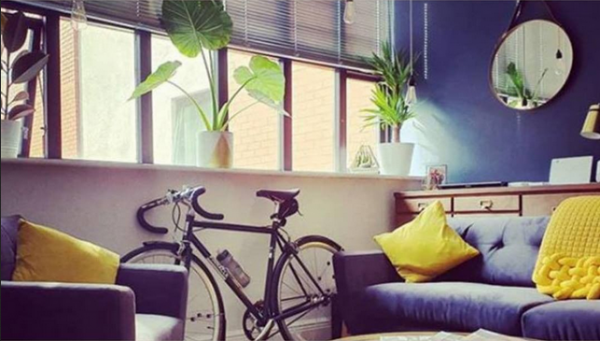
Hidden Costs Revealed: What Your Survey Might Uncover
21.07.2024Buying a home is a major financial commitment and for most of us, it's the biggest purchase we'll ever make. Whether this is your first time stepping on the property ladder, you're an existing homeowner or you're investing in a property for commercial purposes, checking things out thoroughly is always essential. One of the most effective tools to assist with this is a property survey but, what might a survey uncover and how will that affect your property purchase?

How to save money when buying a home
05.05.2024So, you're thinking of buying a new home? That's great news! Is it a trendy three-bed terrace in a cul-de-sac? Or do you fancy a penthouse apartment with city views? Whatever the property type, we're sure you're excited about your soon-to-be new home.
.png)
How Long is a Property Chain?
22.04.2024In case you don't know by now, a property chain is when multiple transactions are linked together and need to be completed at the same time for each sale to be successful. However, many buyers and sellers often wonder about the length of a property chain.
.png)
How to Get a Bigger Mortgage
22.04.2024Unfortunately, bagging your dream home can be curtailed by a number of things. Being unable to get a big enough mortgage can be an issue that arises.









